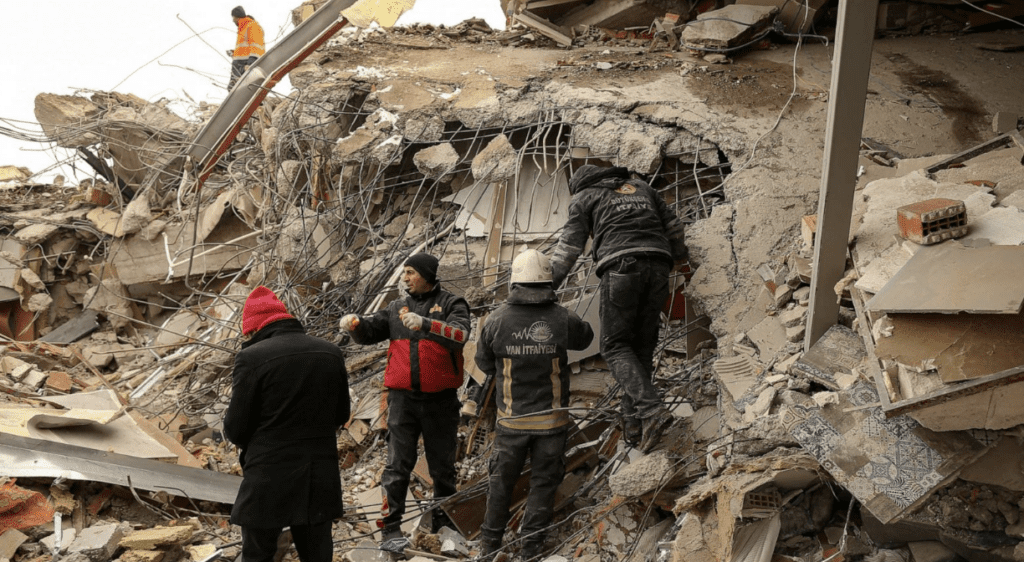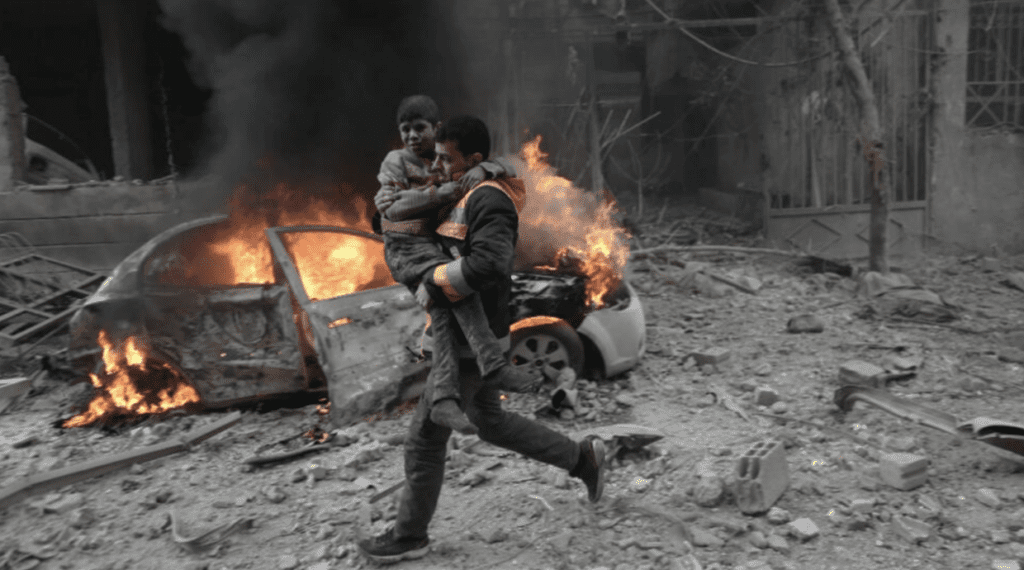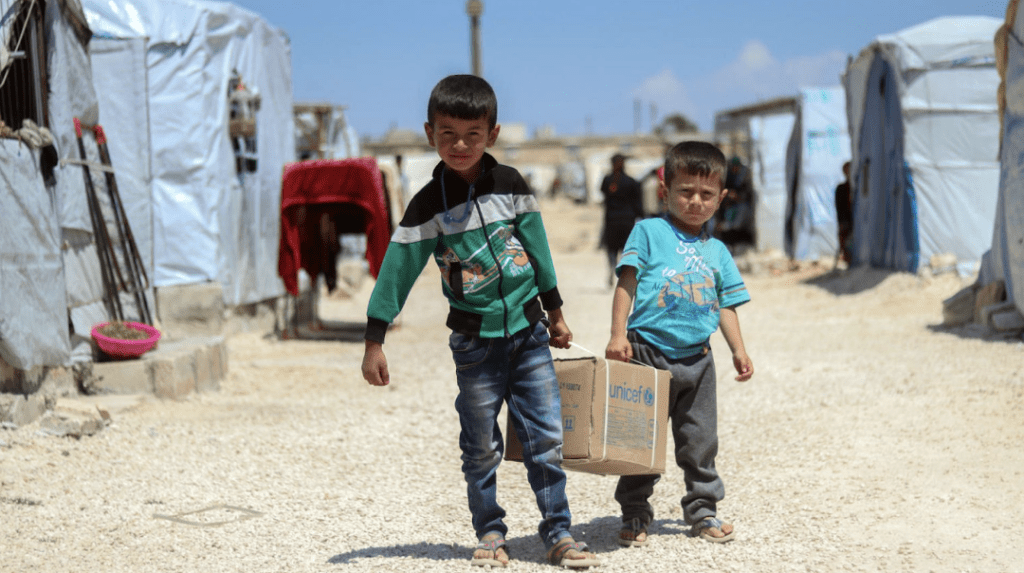By: Bilal Kharrat, MPAC Policy Fellow
In the heart of the Middle East lies a nation composed of more displaced refugees than permanent residents – Syria. A land steeped in vast historical and cultural influence now grapples with the devastating consequences of a war raging for far too long.
The once bustling streets are now eerily quiet, punctuated by the haunting sound of bombardment. Historic cities such Aleppo and Homs lie in ruins and their iconic landmarks, the world’s largest and most ancient organized market (Al Madina Souq), are left in shambles. The historic sites of the past can be rebuilt, but the harrowing loss of its innocent civilians cannot, and its rich culture nears extinction with each passing day.

Throughout these thirteen years, the Syrian government remains consistent in its unjust and inhumane treatment of its civilians, tormenting them with internationally banned and globally condemned methods such as nerve gas. From mass instances of arbitrary detention and torture, such as severe electric shocks and burns to indiscriminate bombing of neighborhoods, residents of the country are plagued by a plethora of international law and human rights violations.

Posing as the largest refugee crisis in the world, the Assad government’s unwillingness to protect its citizens has forcefully displaced over 14 million people. An estimated 507,000 people have been murdered, and those who survive must reckon with the burden of understanding they may be next.
Existing attempts of resolution require a multifaceted approach addressing both the immediate humanitarian crisis and the underlying political causes. Key stakeholders, including the corrupt Syrian government, nonstate groups pursuing freedom, regional powers, and the international community, must commit to outlining and implementing a sustainable path toward peace and stability. The role of the government is central to any solution; any meaningful progress will require the Syrian government to demonstrate a genuine commitment to fair exercise of power and upholding international law and human rights, although very unlikely.
Past efforts by the United States and other Western countries, while productive in some instances, fail to inspire enduring change. Notably, the US-Russia Chemical Weapons Agreement from 2013 was a successful exercise of multilateral diplomacy, and prioritizing the safety of Syrian civilians. This agreement bolstered further peace talks between all parties in Syria, and demonstrated the unity of the UN Security Council, however fell short of continuity in finalizing a tangible solution.
Largely concerned with supplying humanitarian support, participating nations fail to address the root of the Syrian human rights issue, the Syrian government. While some argue that these mediators have no means of settling a civil war, Middle East policy experts argue the opposite. By establishing a military stalemate, forging a power sharing agreement amongst all involved parties, and ensuring the long term preservation of minority communities’ safety, it is believed that this seemingly unmanageable situation can be vastly improved.
By placing additional political and economic pressure on proponent’s of the Syrian government’s actions and supporting peace efforts in North Syria, the United States can contribute to progression in the efforts for Syrian reconstruction. Additionally, establishing stability in Syria serves in the best interest of the United States’ National Security: Syria serves as the site of numerous contentious proxy wars between extremist militia groups and countries vying for their strategic political and economic interests. Through policy which prioritizes the protection and empowerment of civilian lives and simultaneous deterioration of the Assad regime’s influence, the United States can help lay the foundation for Syria’s political rebuild. By eliminating the potential control by extremist groups, the United States effectively protects itself, neighboring countries, and Syria’s civilians from a distinct, yet similarly suffocating and threatening, form of tyrannical rule.

The plight of Syria is a stain on the conscience of humanity, a stark reminder of the appalling consequences of unchecked violence and abuse of political power. As atrocities rage on in neighboring countries such as Lebanon and Palestine, the dire need for multilateral diplomatic action in stabilizing the Middle East rapidly increases. It is incumbent upon the international community to heed the call for solidarity and assistance, to stand with the people of Syria and work tirelessly towards a future where peace, justice, and dignity prevail. Only then can Syria truly be saved from the abyss of war.